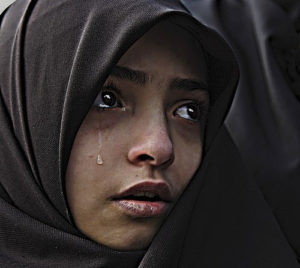Decrease Depression in Women with Reproductive Problems with Mindfulness
By John M. de Castro, Ph.D.
“mindfulness is a potentially feasible and efficacious intervention for reducing depressive symptoms and preventing major depression among people with subthreshold depression in primary care.” – Samuel Wong
Infertility is primarily a medical condition due to physiological problems. It is quite common. It is estimated that in the U.S. 6.7 million women, about 10% of the population of women are infertile. Infertility can be more than just a medical issue. It can be an emotional crisis for many couples, especially for the women. Couples attending a fertility clinic reported that infertility was the most upsetting experience of their lives. Women with infertility reported feeling as anxious or depressed as those diagnosed with cancer, hypertension, or recovering from a heart attack.
Mindfulness training been shown to be an effective treatment for depression and its recurrence and even in the cases where drugs fail. This is especially true for Mindfulness-Based Cognitive Therapy (MBCT) which was specifically developed to treat depression. So, it would be expected that MBCT would be effective in treating the depression that occurs in women with infertility and sexual dysfunction.
In today’s Research News article “Comparative Effectiveness of Antidepressant Medication versus Psychological Intervention on Depression Symptoms in Women with Infertility and Sexual Dysfunction.” (See summary below or view the full text of the study at: https://www.ncbi.nlm.nih.gov/pmc/articles/PMC5767934/ ), Pasha and colleagues recruited women with infertility who were also showing symptoms of depression. They were randomly assigned to receive either Psychosexual Therapy, Antidepressant drugs, or treatment as usual. Psychosexual Therapy consisted of MBCT, relaxation training, and behavior sex therapy. MBCT consisted of 2-hour sessions once a week for 8 weeks and included home practice. MBCT involves mindfulness training, containing sitting and walking meditation and body scan, and cognitive therapy to alter how the patient relates to the thought processes that often underlie and exacerbate psychological symptoms. Depression and sexual dysfunction levels were measured before and after training.
They found that both the Psychosexual Therapy and antidepressant drug groups had significant decreases in depression, but the Psychosexual Therapy group had significantly greater improvements (58% decrease) than the antidepressant drug group (28% decrease). They also found that the lower the levels of depression the higher the levels of sexual function. These results suggest that Psychosexual Therapy that includes Mindfulness-Based Cognitive Therapy (MBCT) is not only an effective treatment for depression in women with infertility but is also superior in effectiveness to antidepressant drugs. This is a remarkable result, with Psychosexual Therapy being far superior to drug treatment in treating depression in these women.
So, decrease depression in women with reproductive problems with mindfulness.
“mindfulness regimens, at least as they are often structured, may be better attuned to addressing the ways that women typically process emotions than the ways that men often do.” – David Orenstein
CMCS – Center for Mindfulness and Contemplative Studies
This and other Contemplative Studies posts are also available on Google+ https://plus.google.com/106784388191201299496/posts and on Twitter @MindfulResearch
Study Summary
Pasha, H., Basirat, Z., Faramarzi, M., & Kheirkhah, F. (2018). Comparative Effectiveness of Antidepressant Medication versus Psychological Intervention on Depression Symptoms in Women with Infertility and Sexual Dysfunction. International Journal of Fertility & Sterility, 12(1), 6–12. http://doi.org/10.22074/ijfs.2018.5229
Abstract
Background
Fertility loss is considered as a challenging experience. This study was conducted to compare the effectiveness of antidepressant medication and psychological intervention on depression symptoms in women with infertility and sexual dysfunctions (SD).
Materials and Methods
This randomized, controlled clinical trial study was completed from December 2014 to June 2015 in Babol, Iran. Of the 485 participants, 93 were randomly assigned in a 1:1:1 ratio to psychosexual therapy (PST), bupropion extended-release (BUP ER) at a dose of 150 mg/d, and control (no intervention) groups. The Beck Depression Inventory (BDI) was completed at the beginning and end of the study. Duration of study was eight weeks. Statistical analyses were performed by using paired-test and analysis of covariance.
Results
The mean depression score on the BDI was 22.35 ± 8.70 in all participants. Mean BDI score decreased significantly in both treatment groups (PST: P<0.0001, BUP: P<0.002) from baseline to end of the study, whereas intra-individual changes in BDI score were not significant in the control group. The decrease in mean BDI score was greater with PST compared to BUP treatment (P<0.005) and the control group (P<0.0001). The PST group showed greater improvement in depression levels (severe to moderate, moderate to mild) in comparison with the two other groups (P<0.001). Drug treatment was well tolerated by the participants in the BUP group.
Conclusion
PST can be a reliable alternative to BUP ER for relieving depression symptoms in an Iranian population of women with infertility and SD
https://www.ncbi.nlm.nih.gov/pmc/articles/PMC5767934/
